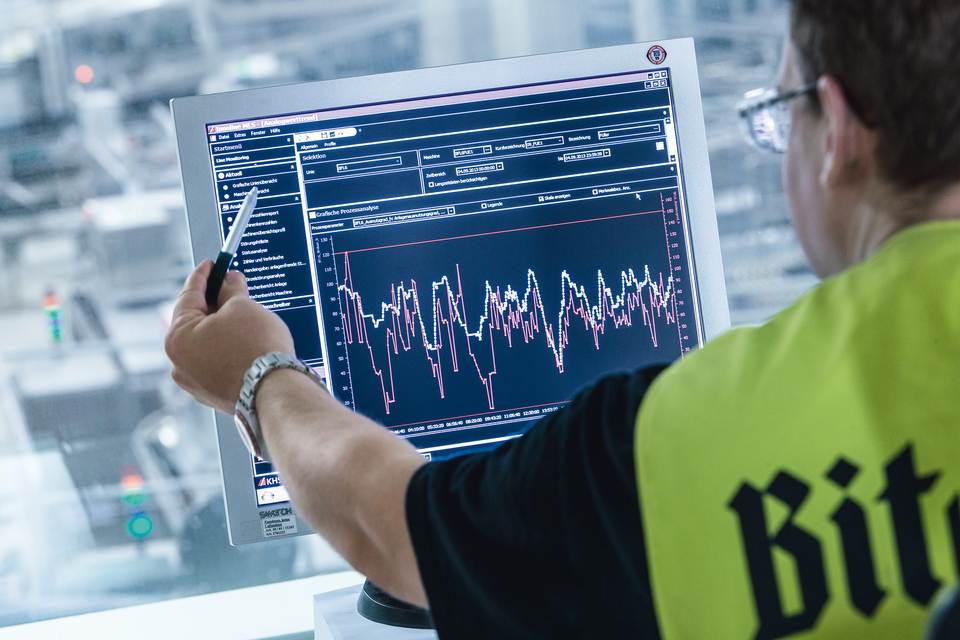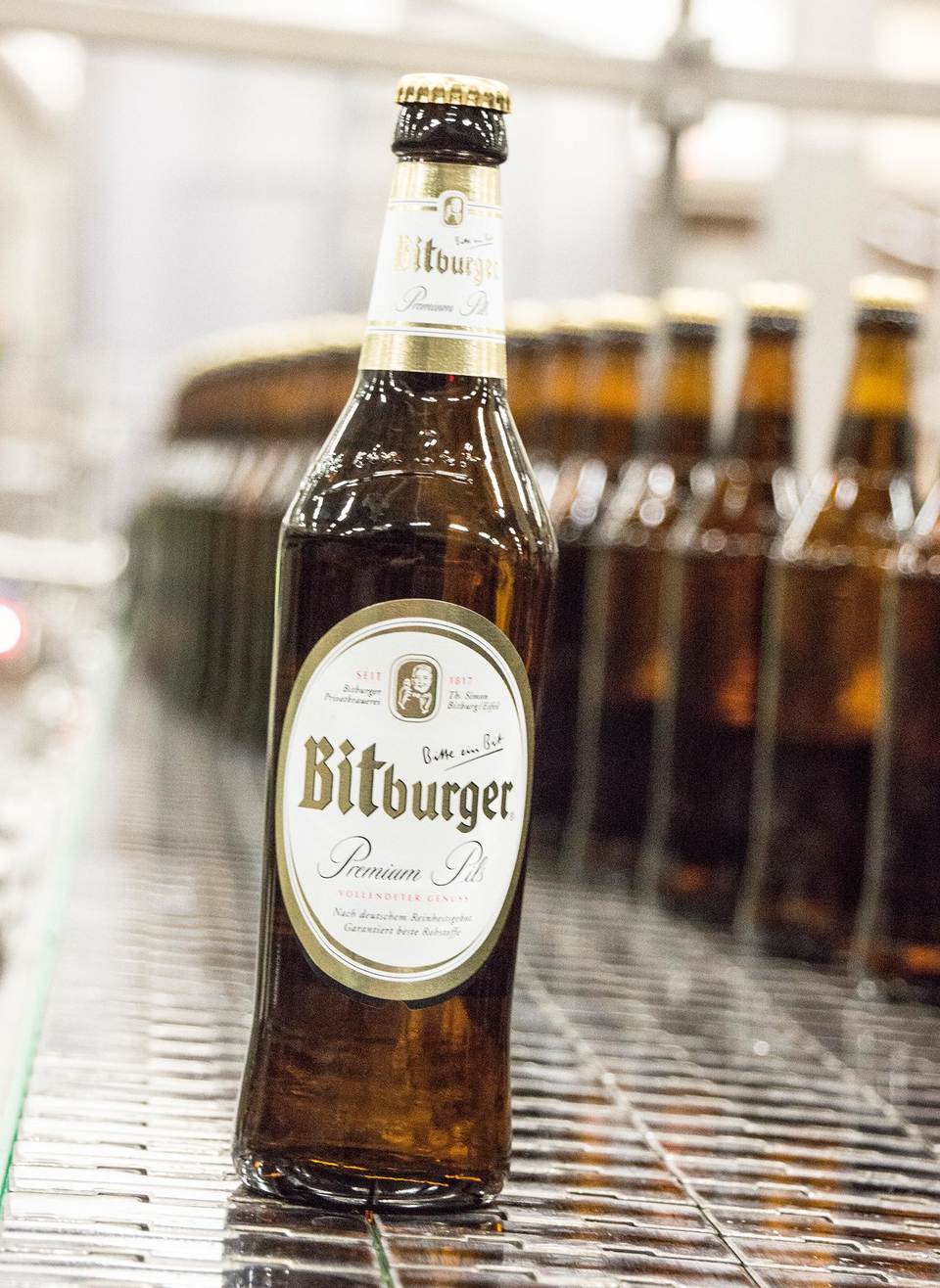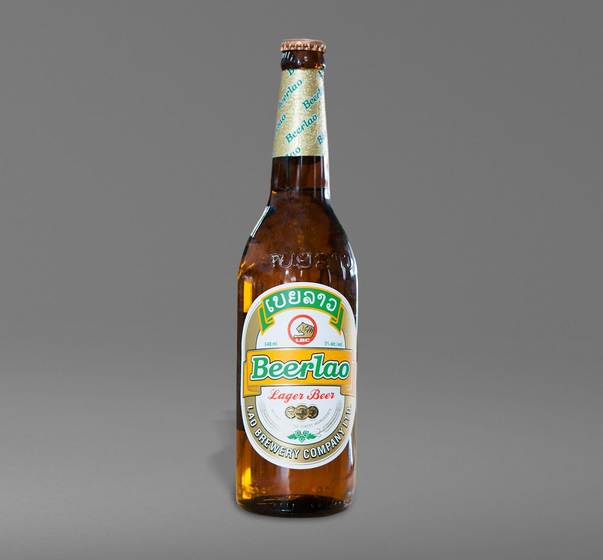For years the beverage market has been calling for more new products in a multitude of variations and packaging for increasingly smaller groups of consumers. Beverage companies are having to react with the utmost flexibility and efficiency in order to survive the competition. However, flexibility and efficiency are at odds with the rapidly increasing complexity of beverage production processes. What’s to be done?
KHS has the answer – the Innoline MES, an integrated, holistic IT manufacturing execution system. This modular standard software, specially adapted for application within the beverage industry, brings transparency to the production process across the board. Efficiency and flexibility can now reach unprecedented levels, giving beverage plants a competitive edge.
Concentrated expertise
As a partner to the beverage industry, KHS strives to push forward developments that perfectly suit its market, making cutting-edge technology and maximum practical benefit its top priorities. The Innoline MES is based on the proven HYDRA product line from MPDV Mikrolab GmbH, one of the leading providers of MES systems*. To help adapt the standard functions of HYDRA to the special requirements of the beverage industry, KHS was able to gain the Bitburger Brewery Group as its partner for a joint pilot project.
In short, the project was set up to combat the growing complexity of Bitburger’s processes, the fundamental task being to feed all production data available at all of the group’s production sites into one system so that processes would be better and easier to manage than in the past.
Dominik Polster, head of Central Project and Process Management for the Bitburger Brewery Group, repeats the question, which was central to his company prior to implementation: “Should we go for a run-of-the-mill product, which would be relatively quick to implement but have shortfalls we’d then have to live with, or should we invest time and expertise in a system specifically customized to match our specifications?” Bitburger reached a logical conclusion and took on a pioneering role on the market, deciding to join KHS for the pilot Innoline MES project. A specially compiled team of experts from Bitburger and KHS then drew up a detailed concept of functions geared towards the specific demands of the beverage sector.
“What’s important for us is that the system can learn. When we come up with new requirements, we then continue developing the system with KHS.”
The acid test
Once put to the test, Dominik Polster and his colleague Rudolf Wahl, head of the Filling and Filtration Department, soon deduced that the Bitburger Brewery Group had profited from the benefits of the Innoline MES on all fronts.
The modular design of the Innoline MES enables modules to be installed either individually or in parallel on any number of filling lines. The brewery in Bitburg currently has nine filling and packaging lines connected to four modules. The project has the following goals:
- To optimize administrative processes
- To make specific improvements and cut costs through detailed process analysis
- To standardize evaluations and use these as benchmarks within the group.
A central database acts as an interface, which networks the modules with one another and with the higher enterprise resource planning system or ERP, which at Bitburger is SAP. The benefits: Data can be directly accessed by all components and are consistent. Personnel have quick access to the information they require. Eliminating hand-written logs saves time and rules out any errors in transmission right from the start. At Bitburger the Innoline MES is primarily based on the following four elements, with two further options also available:
Module 1: line monitoring for performance indicators
The line monitoring module forms the basis of the Innoline MES. It acquires production data from the filling and packaging lines and uses this to generate performance indicators. Bitburger’s performance indicator model is based on the Weihenstephan standard and includes line efficiency, line availability, average line performance, and nominal line capacity.
The benefits in practice: organizational losses, such as setup processes, maintenance measures, and cleaning processes are immediately recognizable as optimization potentials. Rudolf Wahl gives us some examples. “If the efficiency of a line is too low, I can very quickly see from the monitor when which machine caused the problem. Or if new crown corks cause more stops in the filler/crowner area than was previously the case, this is indicated directly on screen so that the supplier can also track this information.” For this purpose, graphic fault analysis reports are available at the press of a button. Says Wahl, “With the help of this module we can also ascertain whether the performance of our existing lines is able to meet our sales targets for the next year, for instance.”
Module 2: order execution for allocation
This module enables production data, such as efficiency, energy consumption, and material costs to be allocated to filling orders and filling batches. The benefits in practice: if labeling materials are soiled and can no longer be used, for example, the module registers the increase in consumption. This information is also sent to the SAP system in real time, enabling order- and product-based cost accounting.
Module 3: order scheduling for order planning
Bitburger used to schedule orders on an SAP planning board, manually comparing planned and actual situations in a process that was inevitably prone to error. The order scheduling module now plans orders based on online information, registering any delays and automatically adapting the schedule accordingly. The new planning status is displayed in a clear graphic. The benefits in practice: in doing so it takes into account any given specifications, such as the availability and speed of the lines, changeover times and product priorities. This way, the module ensures optimum capacity utilization and adherence to delivery schedules and is programmed to keep line idle times to an absolute minimum. Another advantage is the fast reaction to spontaneous customer inquiries.
Before a production order is released, the MES system checks with the SAP system to see if the required materials are actually available. Says Polster, “It’s important for us that we can work out the best weekly schedule for our brewery by comparing various scheduling scenarios.” Wahl adds, “Also because the system provides us with the relevant performance indicators, such as processing and setup times, at the push of a button – for all possible scenarios. It couldn’t be better.”
The order execution and order scheduling modules can also directly indicate what effects any scheduling changes would have on time and cost. Wahl explains. “If the stock of any one product should sink to a critical low due to unforeseen fluctuations in sales, we have to change the schedule by triggering an additional production order for this product. The system now tells us what effect this extra order has on our weekly schedule and I can deduce how high the additional costs will be.”

Module 4: production analysis for evaluation
This module provides web-based evaluations of production data across the individual stages in the process. The benefits in practice: this gives the management a quick overview of the key performance indicators of all lines for precise tracking.
In addition to the four modules the Bitburger Brewery Group has decided to use, the MES also has two other available modules.
Module 5: order material tracking for resource management
This module uses barcode scanners to record all raw materials, consumables and supplies required for an order. The benefits in practice: by reading barcodes, companies can track which materials are used for a specific order at any time. This is of particular significance when tracing production batches, among other things.
Module 6: recipe management sounds the alarm
The recipe management module of the Innoline MES is the central database for critical process parameters. The benefits in practice: this module monitors the given process parameters and automatically warns operating personnel should any limits be exceeded. It thus ensures product quality and avoids production loss.
Win/win situation: optimization potential the definitive factor
Thanks to the perfect interplay of all of its relevant modules the Innoline MES can bring about great improvement within a plant. It considerably increases the efficiency of the line equipment and allows companies to react quickly and flexibly to new demands. Dominik Polster sees his views confirmed. “All of our ideas have been pooled in the project. Our processes have now been optimized just as we wanted them to be.”
The system’s modular design is also a major advantage; customers who at first opt for the basic version of the Innoline MES and thus only for the line monitoring module can simply upgrade further modules later as required. Rudolf Wahl greatly appreciates this. “What’s important for us is that the system can learn. When we come up with new requirements, we then continue developing the system with KHS. Overall, I consider this pilot project to be a real win/win situation. And in the near future the other breweries in the Bitburger Brewery Group are set to benefit, too.”
Conclusion
Beverage producers can considerably boost their competitiveness with the Innoline MES. The system documents the production and other processes with maximum accuracy and sends this data to the ERP system for optimized business process management. It thus takes one step further towards the smart, networked production process, bringing the beverage industry closer to the vision of Industry 4.0 (see the Smart times info box). Innoline MES is definitely in the running within the industry; KHS has already received orders for fifteen Innoline MES projects.
Your contact on this topic
Wolfgang Heßelmann
KHS GmbH, Dortmund, Germany
Phone: +49 231 569-1612
Email: wolfgang.hesselmann@khs.com

























